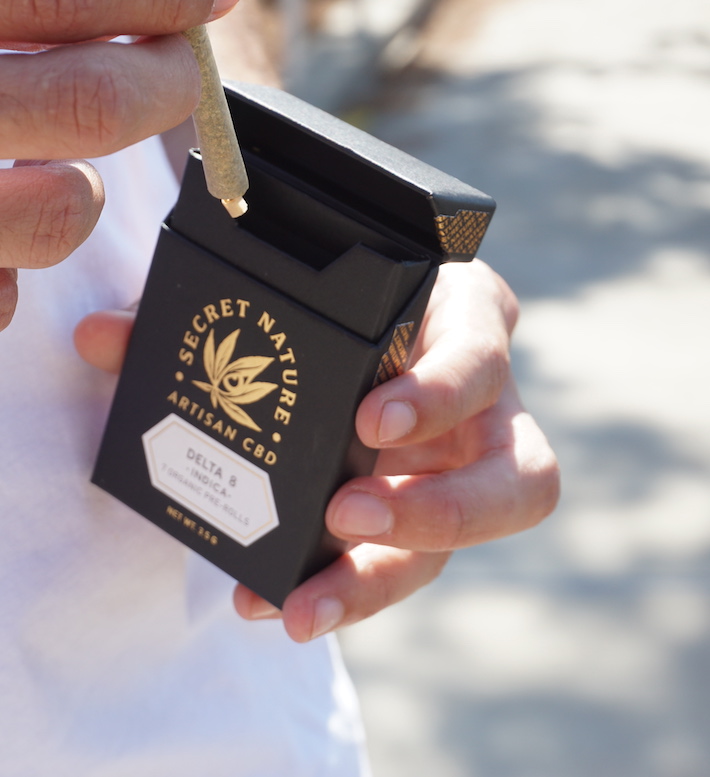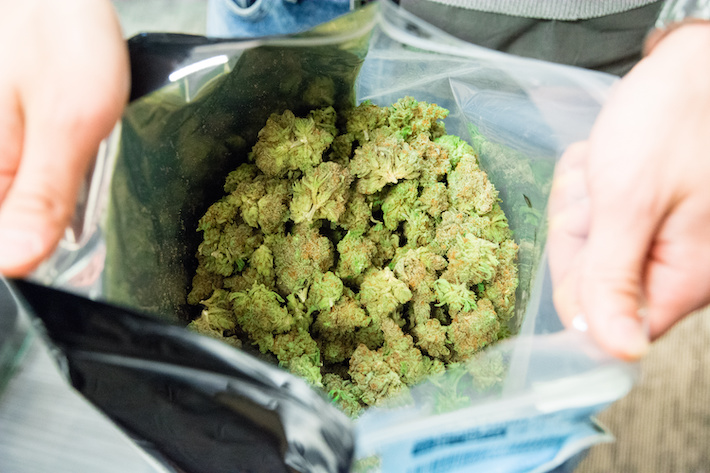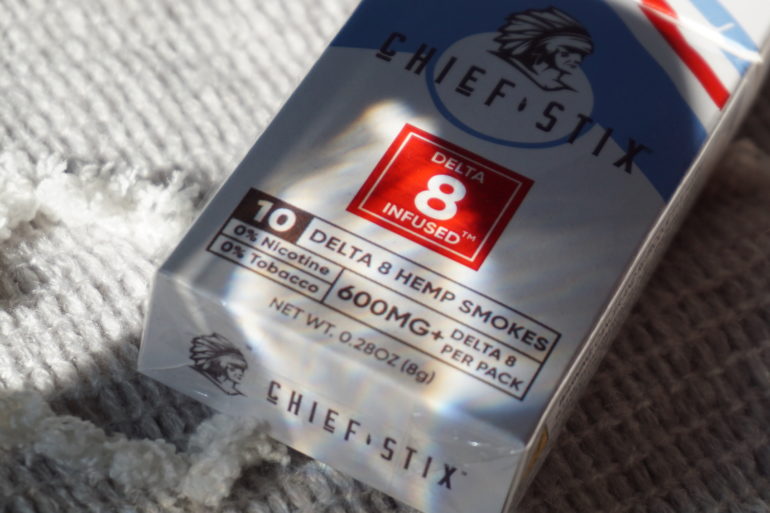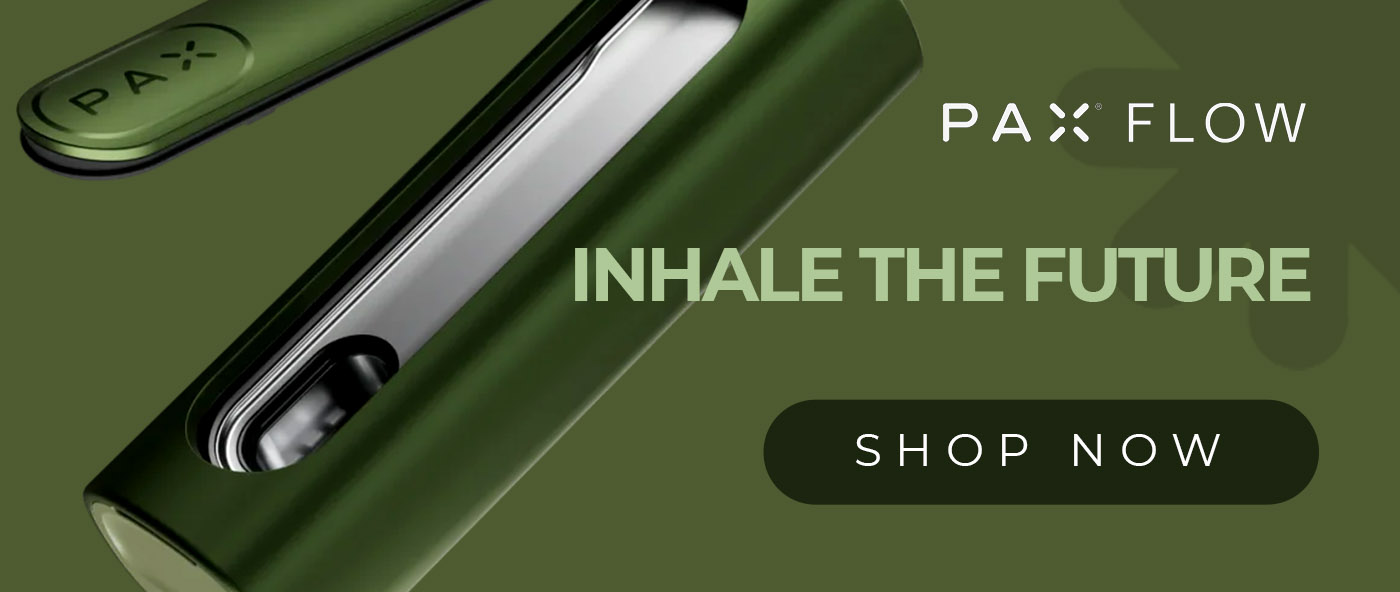People in Indiana thought delta-8 THC was legal until January 2023, when Attorney General Todd Rokita issued an opinion that it is a controlled substance in the state.
This created a lot of confusion, both online and for the state’s hemp industry, who were concerned that a large proportion of their products were actually considered illegal by the state.
The opinion led to a lawsuit from 3Chi, who claimed that their “low THC hemp extract” products have been legal in the state for years, and that the opinion contradicts federal law.
Indiana hemp law is a little confusing, but here’s a run-down of the most important facts, what we know and what we don’t know yet.
Is Delta-8 THC Legal to Sell in Indiana?
Delta-8 THC may be illegal in Indiana, but this will remain unclear until a court case between 3Chi and the state Attorney General is concluded.
However, until early 2023 it was generally considered legal in the state.
Indiana’s current hemp laws were established through Senate Bill (SB) 516, which essentially brought the state’s existing law in line with the federal 2018 Farm Bill.
However, while the state’s controlled substances bill exempted hemp from the definition of marijuana, there is no such exemption from the definition of THCs. This, unfortunately, has created much confusion in the state.
On January 12th, 2023, state Attorney General Todd Rokita issued an opinion essentially arguing that delta-8 is illegal because it is listed as a controlled substance in state law (i.e. in the THC part, not the marijuana part). It also makes arguments that delta-8 THC could be considered a controlled substance in the state.
It is important to note that the Attorney General’s opinion is not binding law since the Attorney General cannot himself criminalize conduct, impose statutory definitions or modify statutes.
Nevertheless, the Attorney General’s interpretation has been challenged in a recent legal action because it is likely local prosecuting attorneys will rely on it should they choose to prosecute the illegality of delta-8 THC.
Additionally, the court denied a request for a preliminary injunction in late March. This doesn’t really address the merits of the case, but it does mean that the current legal status quo will continue until the case is resolved.
In other words, law enforcement can continue to act on the basis of the opinion for now, if they choose to.
RELATED: Where Is Delta-8 THC Legal? A State-by-State Guide
3Chi vs. Indiana: The Battle for Delta-8 THC in Indiana
After Attorney General Rokita issued his opinion, 3Chi and the Midwest Hemp Council sued the state. The outcome of this case is likely to be the best indicator of the legality of delta-8 THC in Indiana.
The lawsuit, filed June 26th, 2023, essentially argues that Rokita attempted to “unilaterally declare” low-THC hemp extracts – a term defined in Indiana law – as Schedule I controlled substances, in defiance of what it says is “established state and federal law.”
The complaint makes a few key points:
- The wording of the 2018 Farm Bill and Indiana’s state-level definition of “hemp” is generally considered to have included delta-8 THC. It includes the phrase “all derivatives, extracts, cannabinoids, isomers, acids, salts, and salts of isomers, whether growing or not,” provided that the delta-9 THC concentration remains below 0.3%.
- It argues that by attempting to exclude delta-8 THC from the definition of hemp, “The Official Opinion imposes an impermissible narrower definition of hemp than mandated by the federal government in the 2018 Farm Bill, despite Congress’s pronouncement that states are not permitted to modify the definition of hemp.”
- It also argues that the opinion, “attempts to create a distinction between ‘synthetic’ hemp derived cannabinoids and cannabinoids ‘naturally occurring’ in the hemp plant without any such distinction found in federal or state statute.”
It is unclear how the court will respond to these arguments. However, much of the confusion seems to revolve around varying interpretations of one specific part of state law.
The lawsuit claims that 3Chi manufactures “low THC hemp extract” products, which Indiana law defines as something that is derived from or contains part of a plant that meets the definition of “hemp,” that has less than 0.3% delta-9 THC and that “contains no other controlled substances.”
These products were legalized by SB 52, and are exempted from the state’s definition of “controlled substance,” “marijuana,” and “controlled substance analog.”
On the other hand, the Attorney General’s office argues that delta-8 THC doesn’t meet the definition of a low THC hemp extract, and that Indiana’s controlled substance bill, “makes no distinction between the types of plants except by delta-9 THC concentration.”
In short, it makes the argument that the definition of hemp only mentioning delta-9 doesn’t mean that all other cannabinoids are legal without limit, but that it makes a narrow exemption only for delta-9 THC at low concentrations.
It seems that the key part of the dispute* is the precise meaning of “contains no other controlled substances” in the definition of low THC hemp extract. Is it that delta-8 THC is an “other controlled substance” that excludes a product from this definition, or does the “other” in the definition mean “other than tetrahydrocannabinols”? Nothing in the law makes this clear.
On March 29th, 2024, the court rejected 3Chi’s request for a preliminary injunction. This decision was made because 3Chi and the Midwest Hemp Council did not show that they had suffered “irreparable harm” as a result of the opinion.
The ruling notes that a preliminary injunction is an “extraordinary remedy,” so in a sense it is not too surprising that this didn’t happen, but it is still a setback for the industry.
However, the case is ongoing and filings have been made in the week preceding this most recent update (June 5th, 2024). Additional judgments are expected in the coming months.
*Note: The attorney general seemed to imply that the definition of “low THC hemp extract” says “The term does not include…hemp.” However, as noted by 3Chi in the complaint, the law actually states that it does not include smokable hemp, rather than hemp overall. So, this point is unlikely to be taken seriously in practice.
Delta-8 THC Legislation Timeline for Indiana
Delta-8 THC was either legalized in 2019 with SB 516 or it has never been legal in the state.
Indiana’s hemp program actually got started in 2014, with the passage of SB 357 on March 26th. This bill followed the 2014 Farm Bill’s definition of hemp (which doesn’t include the “all cannabinoids” language) and permitted production, possession, scientific study and commerce in industrial hemp in the state.
On March 21st, 2018, SB 52 was signed into law, and created the category of “low THC hemp extract,” and exempted it from various parts of the state’s controlled substances bill.
On May 2nd, 2019, the state passed SB 516, which brought the state’s definition of hemp into line with the 2018 Farm Bill. However, it also made it clear that “smokable hemp” was not permitted to be sold as a hemp product in the state.
This was assumed to have legalized delta-8 THC in some forms until the Attorney General’s opinion was released in January 2023. This announcement has led prosecutors to warn businesses about selling apparently illegal delta-8 THC products.
Can Delta-8 THC Be Added to Food?
Regardless of the outcome of the 3Chi vs. Indiana legal proceedings, delta-8 THC cannot be added to food in Indiana.
Firstly, the FDA points out that federal law (specifically the Food, Drug and Cosmetic Act) prohibits adding delta-8 THC to foods that enter into interstate commerce.
Secondly, no Indiana hemp law addresses this issue specifically, or states that adding hemp or low THC hemp extract to food doesn’t “adulterate” the food.
This means that Indiana law is exactly the same as federal law, and delta-8 THC cannot be used in a food product sold in the state.
Can You Buy Delta-8 THC in Indiana?

Delta-8 THC is available to purchase from CBD stores in Indiana, despite the confusion over its legal status. Moreover, edible delta-8 THC products are also available.
RELATED: The Best Delta-8 THC Vape Pens, Reviewed
Delta-8 Alternatives You Can Legally Buy in Indiana
Delta-8 THC alternatives like delta-10, delta-7 and other THC isomers are caught up in the same legal battle as delta-8 THC.
Broadly speaking, it appears the state considers hemp delta-9 THC to be legal, but nothing else.
RELATED: The Best Hemp Delta-9 THC Gummies
Are There Age Restrictions on Delta-8 THC Products?
There are no age restrictions on delta-8 THC products in Indiana, so – if delta-8 is ruled to be legal – the only protection against youth purchases is store policy.
Generally speaking, stores only sell to adults aged 21 or over as a policy, but this is neither required by law nor necessarily always followed.
Can You Consume Delta-8 THC in Public in Indiana?
If delta-8 THC is legal in Indiana, then there are technically no rules about where you can and can’t use it.
Smoking would be illegal in places where smoking cigarettes is banned, but smokeable hemp is illegal anyway.
If delta-8 is illegal, as the Attorney General suggests, then it is illegal to consume it in public too.
Can You Drive Under the Influence of Delta-8 THC in Indiana?
It’s unlikely that it’s legal to drive under the influence of delta-8 THC in Indiana, but not completely clear.
Unlike many states, Indiana doesn’t use a generic term like “any drug” in its law on driving while intoxicated. Instead, it says “A person who operates a vehicle with a controlled substance listed in schedule I or II of IC 35-48-2 or its metabolite in the person’s blood commits a Class C misdemeanor.”
Delta-8 THC is listed in the controlled substance schedule, so in that sense the law does apply to it.
However, if delta-8 THC is ruled to be hemp or low THC hemp extract, it could be argued that this means it isn’t a controlled substance and that it therefore isn’t covered by the driving while intoxicated law.
Additionally, the law was amended for cannabis through SB 201, so if you were not intoxicated at the time and did not cause a traffic accident, this may be used as a defense against the charge.
Punishment in the first instance includes up to 60 days in jail and a fine of up to $500, plus court fees and up to two years’ driving license suspension.
Can You Travel to Indiana With Delta-8?

While the legality of delta-8 THC in Indiana is unclear, it is not a good idea to travel to the state with delta-8 THC.
Under the 2018 federal Farm Bill – without considering state law – this is generally considered to be allowed. However, it’s possible you would get in trouble with Indiana law enforcement even if the product is federally legal.
Closing Thoughts: The Future for Delta-8 in Indiana
The biggest issue for the future of delta-8 THC in Indiana is the outcome of the 3Chi vs. Indiana lawsuit.
If the court rules on 3Chi’s side, the cannabinoid is legal in the state, at least until this is changed by further legislation. If the court rules for the state, then delta-8 THC is already illegal and nothing is likely to change.
However, there were a couple of proposals in the 2023 session that it’s worth mentioning. Firstly, one bill attempted to make it legal to add low THC hemp extract or hemp flower to food, as well as establishing testing requirements. However, this bill didn’t get very far.
One bill attempted to establish medical and recreational cannabis systems in the state, but this didn’t make much progress either. Lawmakers are studying this issue in the time between legislative sessions.
It will likely take some time for this issue to be resolved, though, so for now, the 3Chi lawsuit is the most important thing to keep track of.
Editor’s note: We updated this article on June 5, 2024, to reflect a new court case between 3Chi and the state Attorney General.

